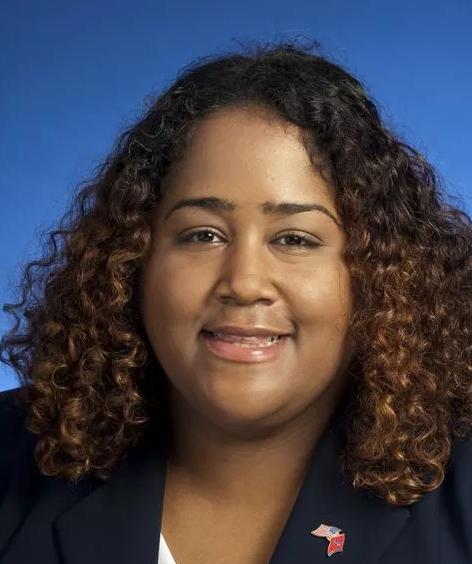The issue of violent crime here in Memphis, particularly that of gun crime, has once again given birth to another “approach” aimed at reducing the numbers of Memphians killed on our city’s streets.
The “Fed Up” campaign, with its message of intense investigations and tough prosecution, as well as its promise of longer and stiffer sentences, has been introduced as a way to curtail violence and to put into place measures that will let the world know we are “anti-crime” here in the Bluff City.

Raumesh Akbari
Mayor Jim Strickland, District Attorney General Amy Weirich, and the Crime Commission here in Shelby County are supporting this campaign and have plans to promote it heavily in weeks to come.
Will it work? This campaign follows a bill passed by the General Assembly that, among other things, calls for enhanced punishment with longer sentencing. Will the infusion of $15 million of taxpayers’ money (the legislation’s fiscal note) in order to put people behind bars for longer periods of time actually bring about the anticipated decrease in crime?
Does this equation — Increased Incarceration = Decrease in Crime — reflect the result we’re looking to get in the interest of public safety?
I believe our leaders are being responsible in their efforts to rid our communities of guns and the carnage that results from the violent use of these weapons. I believe that if you commit a crime with a weapon, that should mean jail time. Definitely.
However, I see two fallacies in this latest approach. One, it does nothing for the underlying issues that cause criminal behavior — issues based on social deviances, a lack of conflict-resolution skills, a resistance to education and training, and familial problems. Data has shown that honing reasoning skills among children at an early age, especially when those skills are reinforced as they grow older, has a lasting effect throughout their lives.
Many crimes occur when people know each other, from arguments and retaliatory moves. Training in social skills, through education and programs, could get at the problem early in life, helping to stifle the violent reactions displayed by many of our young people today.
Two, under the Fed-Up approach, the nonviolent offense of possession of a weapon by a person with a previous felony conviction could qualify that person for a longer, extended sentence. Mere possession, not perpetration of a crime in these cases, could land a person behind bars for years. How many people will this affect? And do the funds expended for this possession show “best use” of the money?
Then there is another factor: societal re-entry, the process of putting able-bodied, formerly incarcerated persons back to work. My assistant at the legislature tells me that more than half of the calls we receive at our office deal with persons wanting to clear their records so that they can work to feed their families, support themselves, and re-enter their communities as contributing citizens.
One of the bills I passed during the first half of this Assembly reduced the amount of money needed to expunge criminal records of qualified individuals. Putting people back to work is a solid move toward crime reduction. But it cannot work unless we also focus on creating more full-employment opportunities for our citizens, not the temporary, minimum-wage jobs many employers offer.
I represent much of South Memphis and parts of East Memphis and Midtown. I want to see my district with safer streets and neighborhoods. I want to see children be able to grow up in their communities without the fear of gunshots and violence due to the proliferation of guns and other deadly weapons.
To make this happen, we cannot rely merely on the prison system to solve the problem. Certainly, there are those for whom incarceration is the only justifiable answer, but we must also work hard to reduce the numbers of weapons on the streets, weapons that are too easily acquired and accessible. To work this equation from start to finish, we must understand that it must also take policies of education, training, employment, and social programs to make this work.
The equation that will work is this one: Early Intervention + Employment + Vigilance + Gun Reduction = Decrease in Crime.
We must make this happen.
Raumesh Akbari is a state Representative from District 91 in Memphis and a member of the General Assembly’s Criminal Justice Committee.